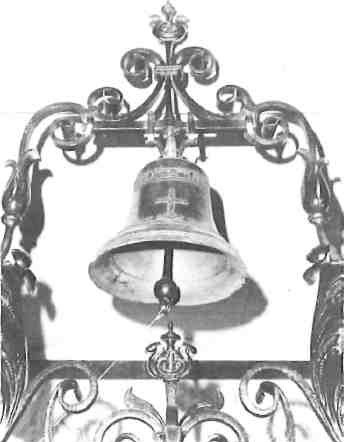Parties apart — although that is difficult in a week with eighty to a hundred “dos” being organized — the idea of Posidonia is for the international shipping community to get together, display their wares, and meet for serious discussions on the problems facing the industry. Today the problems are many and according to a leading shipowner this year’s Posidonia could end up being quite a gloomy affair. With far too many ships chasing too few cargoes, for some shipowners it has now become a question not of falling profits but sheer survival. Many ideas have been produced and one that is attracting the most attention is for a voluntary withdrawal of ships to force up the freight rates.
Another topic that comes up every time shipping people meet, and one that enters into the life of everyone, is the ugly word pollution, especially oil pollution caused by large ships breaking up. With the stranding of the Amoco Cadiz off the French coast in March, the long-expected and feared finally happened. In pollution terms the casualty was five times worse than the mess created by the Torrey Canyon which for the past ten years has been considered the world’s worst. This latest obscene mess along the French coast was probably inevitable. Some Greek shipowners and certainly the Greek government delegation to the big international conference on the subject (IMCO) believe, however, that although it may not have been avoidable, at least the resulting chaos could have been alleviated. As far back as 1975 the Greek delegation to IMCO proposed a system of segregated ballast tanks for tankers and in May 1976 Greece and Norway presented an extremely valuable work of reference. A member of the Greek delegation explained that by the use of segregated ballast tanks, containing water, the chances of oil pollution would be greatly reduced. At the IMCO conference held in London last February, the Greek-Norwegian position, supported by several other countries, failed to gain acceptance. Had the Amoco Cadiz casualty occurred before the vote was taken in London there can be no doubt that the Greek idea would have won the day.
For Greece and all the other countries surrounding the tideless Mediterranean, and for countries bordering the major oil tanker routes, oil pollution remains a constant threat. Like the Argo Merchant disaster off the American coast, this latest pollution is going to put a lot of people, fishermen, hoteliers, and so on, out of business for a long time. What effect it will have on the marine environment and the life cycle of creatures in the sea is still not known. In financial terms it is still too early to assess the cost but one thing is certain: the London insurance market, and in the main that means Lloyd’s of London, will be hard hit. The hull cover on the ship has been put at twelve million dollars with forty per cent written in London together with all the pollution cover.

There is still a certain amount of confusion abroad about the exact status of Lloyd’s. Tracing its origins back to a seventeenth-century coffee house, Lloyd’s is unique among the world’s insurance organizations in as much as it is a market whose members cooperate with each other, compete against each other, and compete against other insurance groups. The speed at which business can be transacted, and above all its integrity, have made Lloyd’s a familiar and respected name around the world. Lloyd’s accepts foreign members but it is a very British “institution” and while a quill pen is used to update the Casualty Book, a computer keeps track of more than sixty thousand merchant vessels and their movements around the world. The old and well-tried methods work alongside the new and modern. The daily newspaper, Lloyd’s List, established in 1734, is no longer just a shipping journal but has branched out and become a general financial and transport paper with a worldwide circulation. And contrary to popular opinion, the Lutine Bell, to many a symbol of Lloyd’s, is not rung for every ship lost but only on special and usually ceremonial occasions, one stroke for bad and two strokes for good news. City gossip has it that the next two bells could well signal the announcement of the engagement of Prince Charles.
The Lutine Bell originally belonged to the French frigate La Lutine that surrendered to the British at Toulon in 1793 and, as HMS Lutine, was used to carry a cargo of gold bullion from Yarmouth Roads to Hamburg in 1799. That was her last voyage, for the vessel was wrecked off Terschelling in a violent storm on October 10, 1799 with the loss of all hands and the cargo valued at about one-million four-hundred thousand British pounds, which was insured at Lloyd’s. A number of salvage attempts have been made over the years resulting in the recovery of some one hundred thousand British pounds in bullion, relics such as a cannon, the rudder from which a chair and table now in the library at Lloyd’s were made, the captain’s watch and, of course, the bell itself, which was raised in 1859 and now hangs over the rostrum in the underwriting room.
The Loss Book, not simply a picturesque survival from the coffee shop days, is consulted by underwriters and always written up with the point of a quill which is cut after being hardened in hot sand. A good quill should last a fortnight and all visitors to Lloyd’s want to see the Book and admire the calligraphy. Another duty of the clerk is to send postcards to the wives of ships’ captains who have asked to be advised of the movements of their husbands’ ships. The loss of the Amoco Cadiz has, naturally, been recorded.







